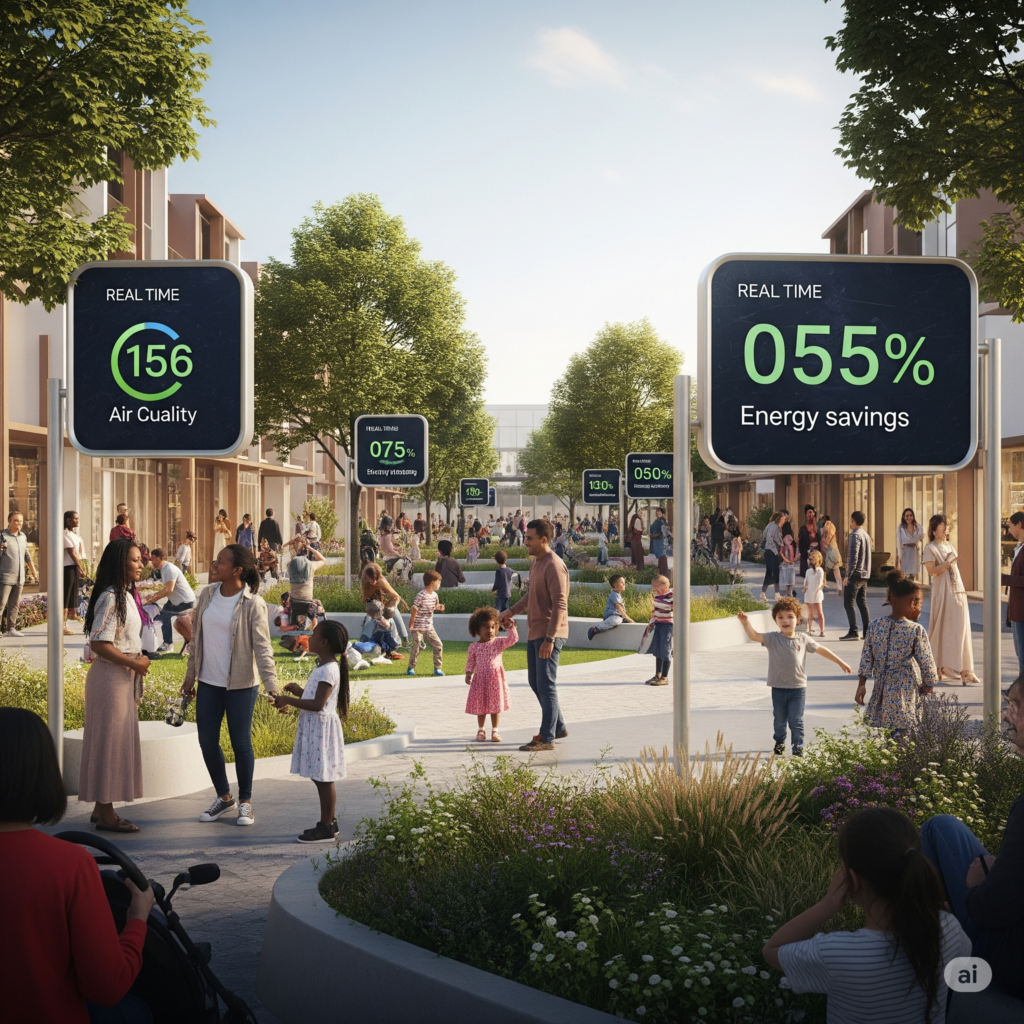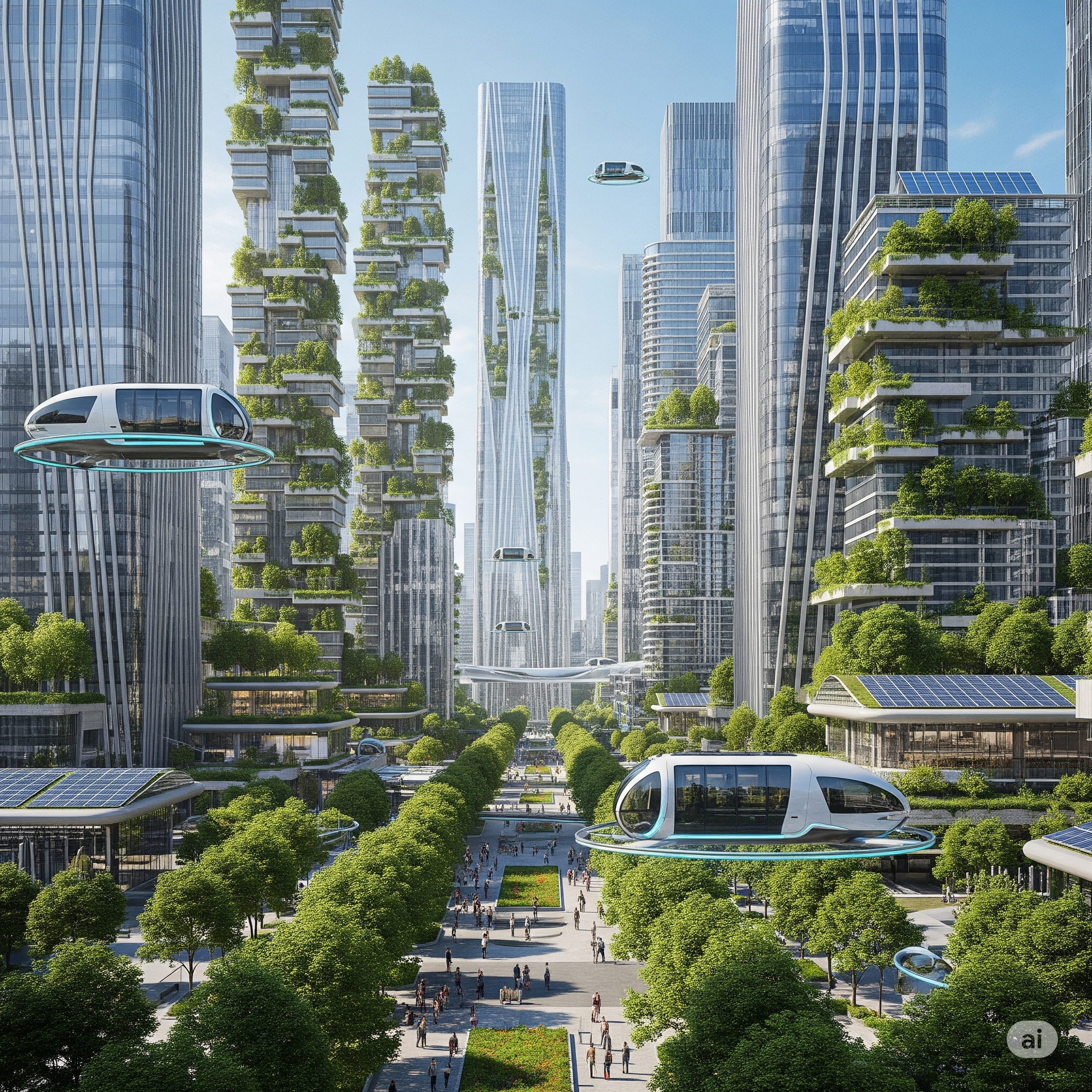Cities at the Crossroads of Tech and Climate

As climate change intensifies and global urban populations continue to rise, the cities of 2025 face a dual challenge: remain livable while rapidly reducing their carbon footprint. The answer? Smart cities built on innovation, digital infrastructure, and environmental consciousness.
These cities are not just deploying sensors and apps. They’re rethinking how people move, live, use energy, and connect with their surroundings.
In this blog, we highlight 7 cities that are setting benchmarks in sustainability, climate resilience, and smart innovation—offering lessons to the rest of the world.
🏙️ 1. Singapore: The Benchmark for Smart Urbanism
Singapore is a long-time leader in smart city design, and in 2025, it’s going even greener.
🔍 What Makes It Stand Out:
- Smart mobility systems using AI to reduce traffic and emissions
- Green buildings mandate (over 80% of buildings certified green)
- Advanced waste-to-energy and water recycling infrastructure
- Digital twin of the city for real-time urban planning
🌿 Sustainability Highlight:
Singapore’s “Green Plan 2030” includes creating 1,000 hectares of green space and planting 1 million trees—key buffers against heat.
🏙️ 2. Copenhagen, Denmark: Carbon-Neutral by Design
Copenhagen aims to be the world’s first carbon-neutral capital by 2025—and is nearly there.
🔍 Innovations Include:
- 62% of citizens bike to work daily
- District heating powered by waste-to-energy and biomass
- Real-time energy monitoring in public buildings
- AI-optimized waste collection and circular economy policies
🌿 Sustainability Highlight:
The CopenHill project combines a power plant with a ski slope and hiking trail—an icon of sustainability-meets-design.
🏙️ 3. Amsterdam, Netherlands: Circular Economy in Action
Amsterdam is transforming itself into a zero-waste circular city, reducing material consumption and emissions.
🔍 Smart Features:
- Smart water management with AI-controlled dikes and floodgates
- Data-driven zoning for urban farming and green roofs
- Smart mobility hubs integrating bikes, EVs, and shared transit
- Open-source circular building platform for sustainable construction
🌿 Sustainability Highlight:
The city uses a “Doughnut Economics” model that balances ecological ceilings with social foundations.
🏙️ 4. Songdo, South Korea: The City Built from Scratch
One of the world’s first smart cities built from zero, Songdo continues to evolve as a fully connected, eco-conscious urban hub.
🔍 Smart Infrastructure:
- 40% green space, 15 km of bike paths
- Vacuum-powered waste collection system (no garbage trucks)
- AI-based public transport and energy systems
- Buildings constructed with smart glass and energy-saving materials
🌿 Sustainability Highlight:
Songdo’s LEED-certified infrastructure and data-driven traffic systems reduce GHG emissions significantly.
🏙️ 5. Vienna, Austria: Human-Centric Smartness
Ranked repeatedly as the world’s most livable city, Vienna’s approach to smart tech is citizen-first and climate-smart.
🔍 Sustainable Features:
- Social housing with energy-positive buildings
- Sensor-based traffic lights for pedestrians and cyclists
- Data portals for participatory urban planning
- 100% renewable energy goal for municipal operations by 2030
🌿 Sustainability Highlight:
The Aspern Smart City project tests innovations like shared EV fleets, local energy trading, and smart meters in real time.
🏙️ 6. Barcelona, Spain: The Digital + Green Fusion
Barcelona blends smart governance with public green space regeneration.
🔍 Smart City Highlights:
- Sensor-enabled parking, lighting, and air quality systems
- Citizen-facing city dashboard for transparent data access
- AI traffic and waste algorithms
- Superblocks (car-free zones) reclaimed as social and ecological hubs
🌿 Sustainability Highlight:
Barcelona’s Green Infrastructure Plan connects parks and gardens to form a climate-adaptive “green network.”
🏙️ 7. Bangalore, India: Rising as a Smart Sustainability Hub
Often called the Silicon Valley of India, Bangalore is taking bold steps toward smarter, greener urban life.
🔍 Key Developments:
- AI-powered traffic management in pilot zones
- Startup-led microgrid solar initiatives for apartment complexes
- Smart water meters and leak detection in rollout phase
- Digital mapping of urban trees and lakes for conservation
🌿 Sustainability Highlight:
The “Million Tree Bangalore” initiative aims to offset the city’s air pollution by 2026 through native plantations.
📊 Common Threads: What Makes These Cities Smart and Sustainable?
| Element | Role |
|---|---|
| AI & Data | Real-time decision-making for energy, traffic, safety |
| Green Infrastructure | Urban cooling, flood mitigation, biodiversity |
| Mobility Alternatives | Reduced emissions via bike lanes, EVs, car-free zones |
| Citizen Engagement | Apps, dashboards, open data for transparency |
| Resilience Planning | Climate risk mitigation through smart zoning and design |
🚧 Challenges on the Path Ahead
Even these cities face key challenges:
- Data privacy and surveillance concerns
- Digital exclusion for low-income populations
- Upfront costs of smart infrastructure
- Balancing heritage preservation with futuristic planning
“Smartness without inclusivity is just automation.” – World Urban Forum, 2025









+ There are no comments
Add yours